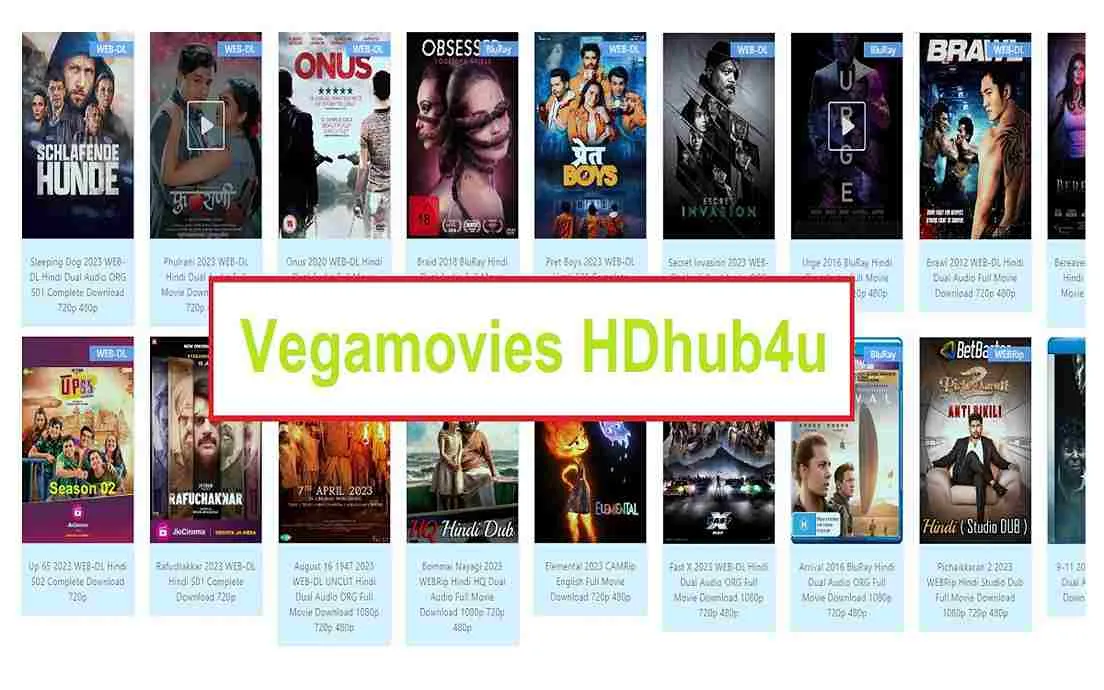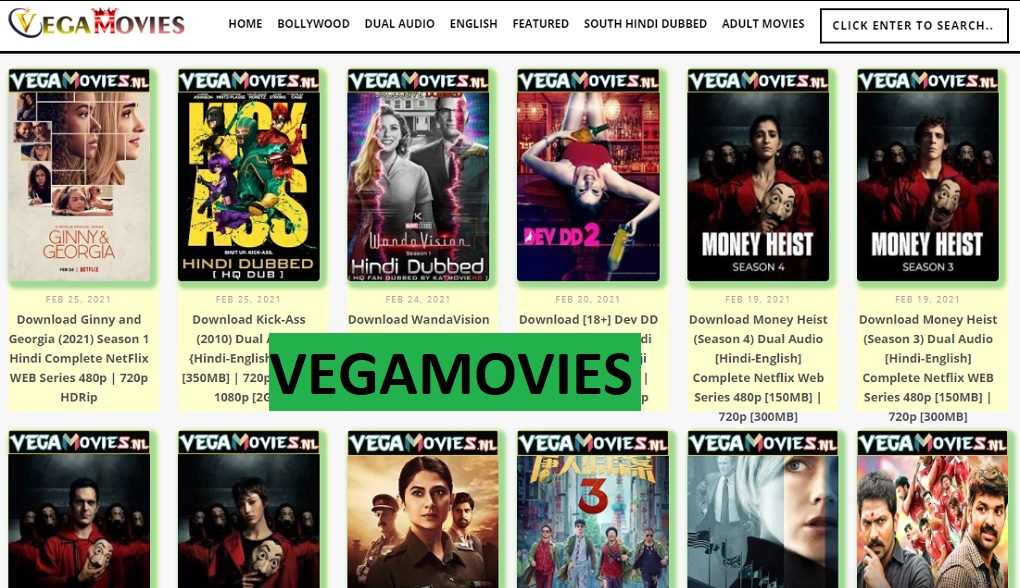Is the digital world truly a Wild West, where intellectual property rights are perpetually under siege? The proliferation of websites offering unauthorized access to copyrighted content, often with impunity, paints a stark picture of this ongoing battle, and the recent actions by the High Court of New Delhi highlight this complex landscape.
The echoes of the digital piracy debate resonate across continents, with India emerging as a particularly fertile ground for platforms skirting copyright laws. The rise of services offering Bollywood, Hindi, Tamil, and Telugu dubbed movies and series, often in high-definition formats like 720p, 1080p, and even 4K, presents a significant challenge to content creators and distributors. This digital ecosystem thrives on the promise of instant, free access, attracting a vast audience eager for readily available entertainment.
One entity, "Vegamovies," has found itself squarely in the crosshairs of legal and regulatory scrutiny. The website's core offering revolves around providing access to a wide array of movies and series, a practice that has garnered significant attention. Its accessibility, offering of content in various quality levels (480p, 720p, 1080p), and the inclusion of Hollywood and South Indian films further broadened its appeal, making it a go-to destination for many seeking free entertainment. However, the perceived convenience comes at a steep cost: the infringement of copyright and the potential undermining of legitimate content distribution channels.
The ramifications of such activities are far-reaching. For legitimate content creators, the impact is a direct hit on revenue streams. The unauthorized distribution of films and series deprives them of income derived from theatrical releases, streaming subscriptions, and digital rentals. This financial impact can stifle creativity and limit the resources available for the development of new projects. The repercussions go beyond mere financial losses; the integrity of the film industry itself is at stake. The industry's ability to flourish and continue creating engaging content hinges on the ability to protect its assets from rampant piracy.
The recent actions by the High Court of New Delhi, including the issuance of a dynamic blocking order, underscores the seriousness with which authorities are viewing the issue. Such orders aim to curb the spread of illegal content by targeting websites that offer access to copyrighted material. The use of "dynamic" in this context implies that the blocking measures are designed to be adaptable. The goal is to prevent the circumvention of the ban by continuously identifying and blocking mirror sites and proxy servers that emerge to replace blocked domains.
The U.S. Trade Representative has also weighed in on this issue, specifically calling out Vegamovies as one of the most notorious pirate sites. This designation highlights the global scope of the problem and the international efforts to combat digital piracy. Such scrutiny can result in various forms of pressure, including legal action and financial sanctions. It also acts as a public condemnation, raising awareness of the potential risks associated with using such platforms.
- Explore Trends News With We From Writing To Popes More
- Stray Kids In The Maknae Age Birthdate More Ultimate Guide
The legal battles are often complex and protracted. The operators of these websites frequently utilize evasive strategies, such as hosting their servers in jurisdictions with weak copyright enforcement. This makes it difficult for authorities to track down and prosecute those involved. Furthermore, the websites often change domains frequently and employ sophisticated techniques to mask their activities. This cat-and-mouse game between copyright holders and pirates is a constant struggle.
Consumers must recognize the ethical dimensions of consuming content from illegal sources. While the allure of free content is strong, it comes at the cost of undermining the creative community. Moreover, downloading from these websites can expose users to security threats, including malware and viruses. The risks associated with digital piracy extend beyond copyright infringement.
In a parallel development, the rise of legitimate streaming platforms has altered the entertainment landscape. Services like Netflix, Amazon Prime Video, and others offer vast libraries of movies and series, often at competitive prices. These platforms invest heavily in acquiring content, promoting it, and ensuring a high-quality viewing experience. The availability of these options challenges the narrative of piracy. The convenience of streaming platforms, coupled with their commitment to legal distribution, offers a compelling alternative.
The contrast between the ease of access to copyrighted content and the legal ramifications of its distribution illustrates the need for a multi-pronged strategy to combat digital piracy. Legal measures like dynamic blocking orders are one component. However, education, consumer awareness, and the promotion of legitimate streaming options are just as crucial. The entertainment industry also has a responsibility to innovate, making content more accessible and attractive.
One example that encapsulates the issue vividly is the availability of "Venom (2018)" in multiple formats, as the provided information showcases. The mention of 2160p (4K) HDR 10 with multiple audio tracks (Tamil, Telugu, Hindi, and English) and the presence of embedded subtitles (esubs) signifies a high-quality offering that mirrors the experience consumers might be seeking. This very act of offering such content is, however, in direct violation of copyright law. The appeal of such releases, especially when available for free or at significantly reduced costs, is a major driver of illegal consumption.
The entertainment industry is adapting to the digital age by developing strategies that go beyond simply enforcing copyright laws. This includes finding innovative ways to engage audiences. These strategies span areas of content creation, distribution, and marketing. From interactive narratives to immersive viewing experiences, the industry seeks to compete with the convenience and allure of piracy.
The future of content consumption depends on the choices made by consumers, content creators, and policymakers. As technology continues to evolve, the digital landscape will continue to change. The ability to balance consumer demand with respect for intellectual property rights is a challenge that requires vigilance, innovation, and a commitment to ethical practices. The fight against digital piracy is ongoing, and its outcome will shape the very essence of how movies and series are produced, distributed, and enjoyed in the years to come.



Detail Author:
- Name : Dr. Aaliyah Hermiston
- Username : ondricka.pauline
- Email : randi31@gmail.com
- Birthdate : 1992-07-18
- Address : 117 Joana Road Suite 897 Courtneymouth, NM 64607-7895
- Phone : (551) 794-0563
- Company : Daniel, Kozey and Feeney
- Job : Embossing Machine Operator
- Bio : Sint numquam exercitationem beatae amet. Error harum delectus natus asperiores eveniet ea ut. Est pariatur vero officia deleniti.
Socials
facebook:
- url : https://facebook.com/lucy_dev
- username : lucy_dev
- bio : Dolorem et omnis praesentium reiciendis sapiente enim magnam.
- followers : 962
- following : 1254
instagram:
- url : https://instagram.com/turcottel
- username : turcottel
- bio : Et et maiores pariatur magnam et voluptas molestiae. In et corporis eos odit sit.
- followers : 3202
- following : 1902
twitter:
- url : https://twitter.com/turcotte2008
- username : turcotte2008
- bio : Praesentium dolores natus nihil in. Sed similique laudantium rem aut explicabo officiis. Similique quo reprehenderit sint ex.
- followers : 4293
- following : 1989
tiktok:
- url : https://tiktok.com/@turcotte1996
- username : turcotte1996
- bio : Omnis impedit aut voluptatem eos. Quae ut sit consequatur ipsa.
- followers : 5954
- following : 1995